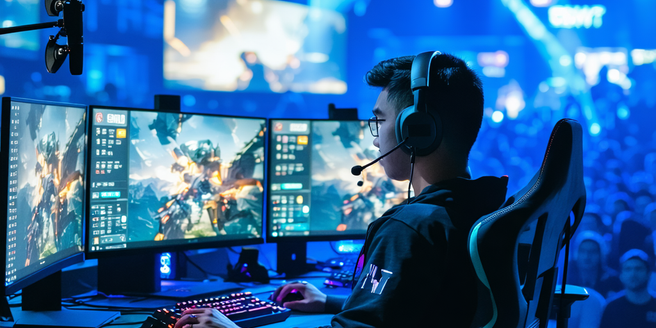Mastering Skill-based Games For Rewards

Understanding the Basics of Skill-Based Games
Skill-based games are a genre where outcomes rely more on players’ abilities than on luck. Unlike chance-based games, skill-based games require strategy, quick thinking, and refined techniques. Mastering these games involves understanding their mechanics and the elements that influence results. Familiarity with the rules is crucial as it forms the foundation for developing skills. Knowing which skills are required can guide practice and improvement efforts. Strategy and informed decision-making further impact performance. Whether playing puzzle games or competitive eSports, recognizing patterns and anticipating actions are common skills involved. Understanding how to apply these skills effectively can lead to greater success and enjoyment.
Choosing the Right Games for Your Interests and Skills
When selecting skill-based games, it’s essential to consider personal interests and existing skills. A game that aligns with your hobbies increases engagement and motivation. Evaluate games based on the skills they emphasize, such as agility, problem-solving, or teamwork. Choosing games that complement your strengths while challenging your limits fosters growth and enjoyment. Explore various genres to find the best fit – from word games to strategic card games, each offers unique skills to hone. Communities and reviews often provide valuable insights into game mechanics and challenge levels, helping make informed choices. Thus, aligning games with personal aspirations and skillsets fosters an enriching experience.
Developing Strategies to Enhance Your Gameplay
To excel in skill-based games, developing effective strategies is key. Start by analyzing the game’s mechanics and understanding its core objectives. Identify patterns and repetitive scenarios and devise strategies to overcome challenges. Practice is essential; frequent gameplay enhances muscle memory and reflexes. Observing other players, either through online streams or recorded sessions, can offer new tactics and strategies. Joining forums or communities provides a platform to discuss and refine strategies with other enthusiasts. Experiment with different approaches; sometimes unconventional strategies can be surprisingly effective. Remember, adaptation is crucial as each game session can present unique challenges. Continuous learning and strategy refinement can lead to mastery.
Leveraging Online Resources and Communities for Learning
In the digital age, numerous resources are available for honing skills in any game. Online tutorials, webinars, and walkthroughs serve as valuable learning tools for understanding complex gameplay mechanics. Engaging with gaming communities, such as forums and Discord channels, allows players to share tips and strategies. These platforms provide a wealth of knowledge and diverse perspectives, fostering a supportive environment for learning and growth. Websites like YouTube or Twitch host countless gameplay videos, where players can observe and learn from others. By actively participating in these communities, one can stay updated with the latest trends and discussions, continuously enhancing their gameplay tactics.
Setting Realistic Goals and Tracking Progress
Establishing realistic goals is crucial in mastering skill-based games. Start by identifying specific, achievable objectives that align with your abilities. Break these goals into smaller, manageable tasks to maintain focus and motivation. Keep track of your progress using tools or journals dedicated to gaming performance. Reflect on wins and setbacks to uncover patterns in your gameplay. Regularly reassessing goals ensures they remain challenging yet attainable. Celebrate milestones to boost morale and reinforce positive habits. By consistently tracking progress, players can identify areas for improvement and strive towards mastery. Ultimately, goal-setting and progress tracking fuel growth and enhance the gaming experience.
Maximizing Rewards and Maintaining Motivation
Maximizing rewards in skill-based games requires a balance of perseverance and strategy. Recognize which rewards are achievable with your current skillset and use them as motivation for improvement. Establish a reward system that includes both in-game achievements and personal incentives. This encourages consistent effort and maintains interest over time. Engage with game-specific challenges or tournaments, often offering rewards as incentives for advanced skills. Additionally, use setbacks as learning opportunities to reassess strategies and refine techniques. Understanding the reward mechanics within a game—such as point systems or unlockable content—can lead to efficient playstyles and sustained motivation for long-term engagement.